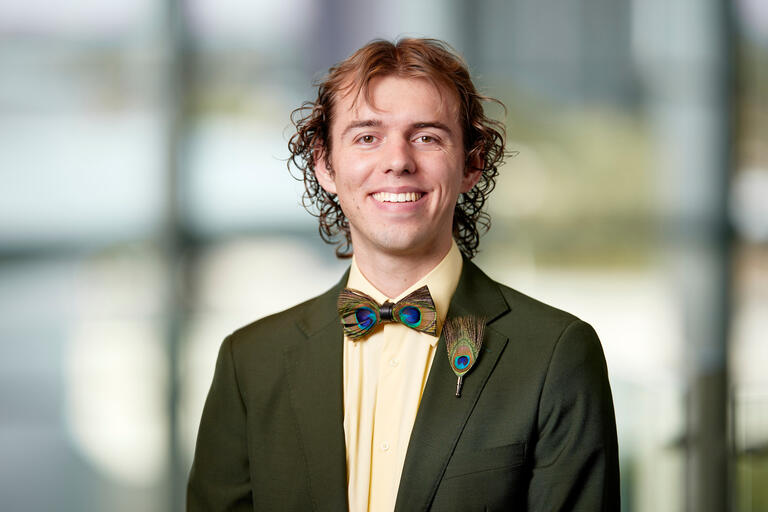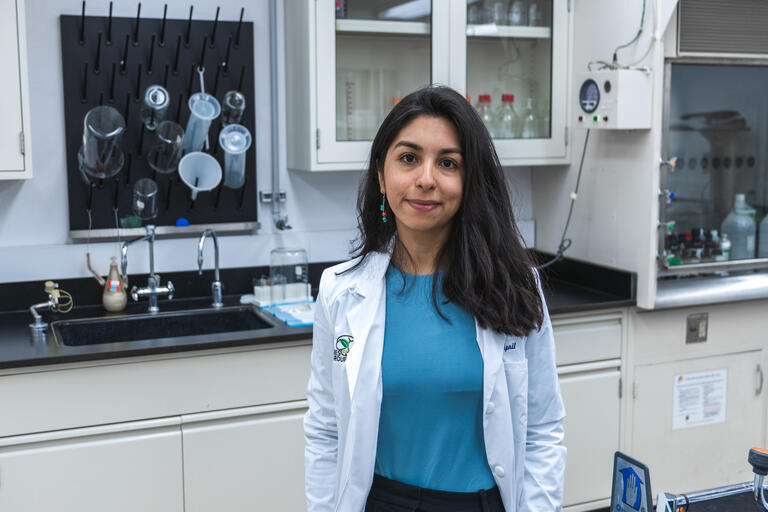By the time you finish reading this article, someone in the United States will have developed Alzheimer’s Disease. It takes only 65 seconds for another person to acquire the detrimental disease that impairs memory, thinking, and behavior.
“The number of people with the disease is projected to increase to 16 million by 2050,” said Bhagya De Silva, a UNLV chemistry doctoral student eager to find a solution.
She won third place at this year’s Rebel Grad Slam, an annual event hosted by the Graduate College that challenges graduate students to present their research in a condensed and compelling way using only three minutes and one PowerPoint slide.
De Silva has come a long way — literally. She was an undergraduate student in Sri Lanka when she gained interest in biochemistry and began her journey as a researcher.
“I am currently investigating the interactions between the metal, beryllium, and the enzyme, GSK-3β,” she said.
GSK-3β is a key enzyme involved in the progression of Alzheimer’s disease. Existing drugs only treat symptoms of the disease, but not the root causes.
“Beryllium is a thousand times more effective in inhibiting GSK-3β compared to the classical inhibitor, lithium,” said De Silva. “We believe that we can design synthetic drugs that will fit the same beryllium properties.”
This will lead to development of much more effective Alzheimer’s treatment, helping millions hold on to their memories, she said.



